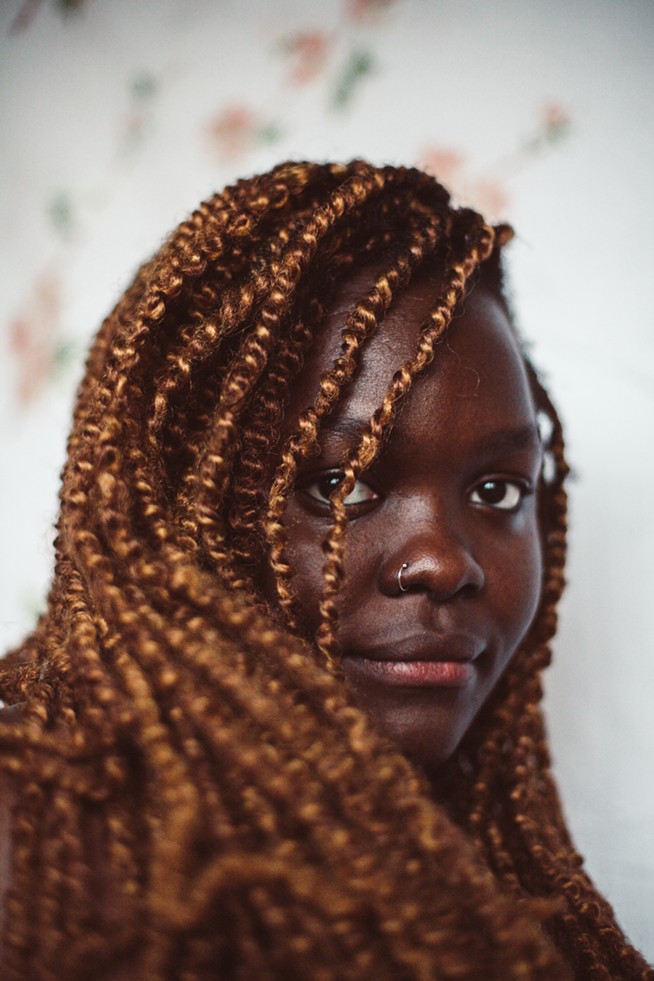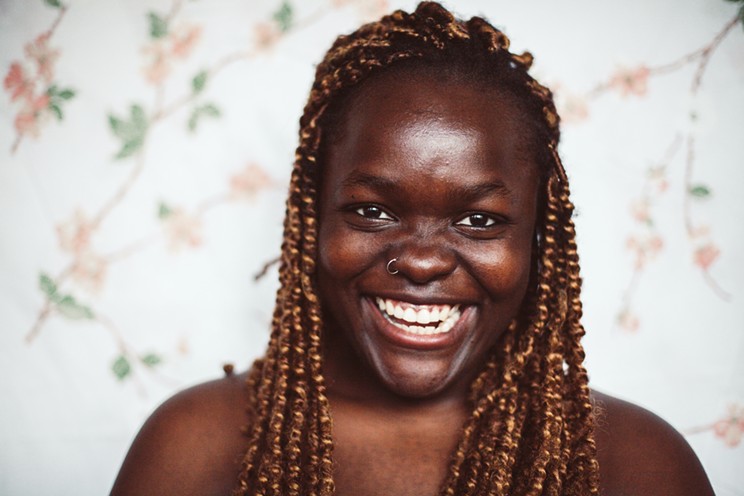Francesca Ekwuyasi at Afterwords Literary Festival
Sunday, October 3, noon, livestream, $5
Tickets at afterwordsliteraryfestival.com
Francesca Ekwuyasi’s debut novel, Butter Honey Pig Bread, doesn’t just sound like the most delicious word salad you’ve ever read. It’s also a pulse-taking study of today’s Halifax, from the quiet trudge of gentrification in the city’s north end to the salty wind that awaits when you take the ferry to Dartmouth. It tackles themes of family, belonging, intergenerational trauma and the supple bravery required to heal—something done with such deftness that the book has been longlisted for the Giller Prize and was a finalist for the Lambda Literary Award, the Governor General's Literary Award and the Amazon Canada First Novel Award (not to mention landing on must-read lists at the Globe & Mail and The New Yorker).
Now, Ekwuyasi is preparing to share more about her novel and the world it delivers to readers at the Afterwords Literary Festival, when she’ll be in conversation with Lee-Anne Poole of Halifax Fringe via livestream on Sunday, October 3 at noon.
We caught up with the Halifax author one cozy fall morning this week to talk Butter Honey Pig Bread, breakout fame and the best parts of writing a book.
The Coast: How does it feel for your first book to have been met with such national acclaim and recognition?
Francesca Ekwuyasi: It’s really overwhelming, in the best way possible. I feel very grateful and it’s quite the best-case scenario when you present something to the world. So yeah, it feels really surreal and intimidating, but more than that, I'm just really grateful and excited to do more.
There’s a lot of things I love about this book but one thing I delight in is really great, realistic—but unexpected—representations of place. This feels cliche, but it's like Halifax is another character. I'm just curious why an emphasis on place was so important to you in the book—and why having Halifax be one of those places was so important?
I think because I’ve always loved to read. Growing up [in Nigeria], because of the way the world is, I was required to read a lot of British and North American literature—and for better or worse, it was exciting to explore, especially with speculative, sci-fi, fantasy: Being metaphorically and literarily taken to new places was always something that excited me as a young reader and excites me now as an adult. It’s something I wanted to illustrate—and it was also quite necessary for the story of the characters, because two of the three main characters were immigrants. I think a strong sense of place is my base for fiction. There’s also a strong sense of place in the books I enjoy: Books like Open City by Teju Cole, just to name one.
So that was important to me. I enjoy immersing the reader in the place, in the senses, the cityscape or the native environment, because that becomes a tool to move the reader into the space.

Some of the central themes of the book are family, forgiveness, past trauma—which is beautiful and important but also heavy. I'm curious how, on a personal level, you navigated writing about these heavy, difficult things?
I mean definitely, they can be heavy and difficult. Conflict is a very natural part of any relationship. So, those themes of forgiveness, betrayal, grief, all of that: To me they're not that different than themes of sex or adventure. It’s all here. And maybe that's just my style. I like to write realism, even though sometimes it's very fantastical or magical. And I’m really into speculative fiction and sci-fi. But I’m still interested in all of that grounded in realism: So we know about each other, what we know about what it means to be human. Those themes just seem to me very temperamental.
Food is obviously a huge motif in the book—it’s even the name. How do you think food works as a motif to tell stories in general, and how it works specifically in this book?
I think similar to place, it’s very grounding. We have to eat, whether we like it or not. So if I’m writing a day in the life of someone, food has to be a part of it. And I think food is an element in real life: Even if people struggle with an eating disorder, you still have to eat. So it becomes this unavoidable elephant in the room—but also just maybe the entire room. Food is fundamental to humans; it’s sustenance.
So that was another reason: I wanted to ground the story and the characters in the senses. So, they each have to have food everyday. And I wanted to write about that. This thing that I wanted to write about, in some cases: Their stream of consciousness or insecurities or innermost desires. I wanted to write about their everyday mundane experiences, like bathing, periods, sex, food.
How are you hoping people will walk away from your book feeling? What do you hope they’ll be thinking?
I'm hoping people will just feel really, like: You know when you have a really good meal and you're not [over-full]? When the food is perfectly delicious, and you're perfectly content, like you could have more—but there's no more. But you're like, ‘Whatever, that was just so good I'm just so thrilled and I'm full. I feel good.’ That's how I want people to walk away. I want people to be like: ‘It’s tender, but, maybe it's worth it.’ I want the enjoyment to be more than the crunchy, harsh feelings that sometimes you can get in a story that isn’t yours. I want it to be a pleasurable experience.
This interview has been edited for length and clarity.

